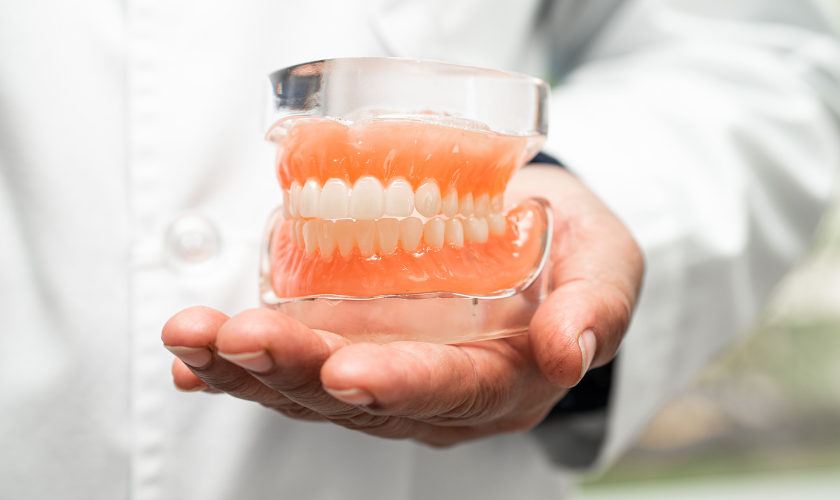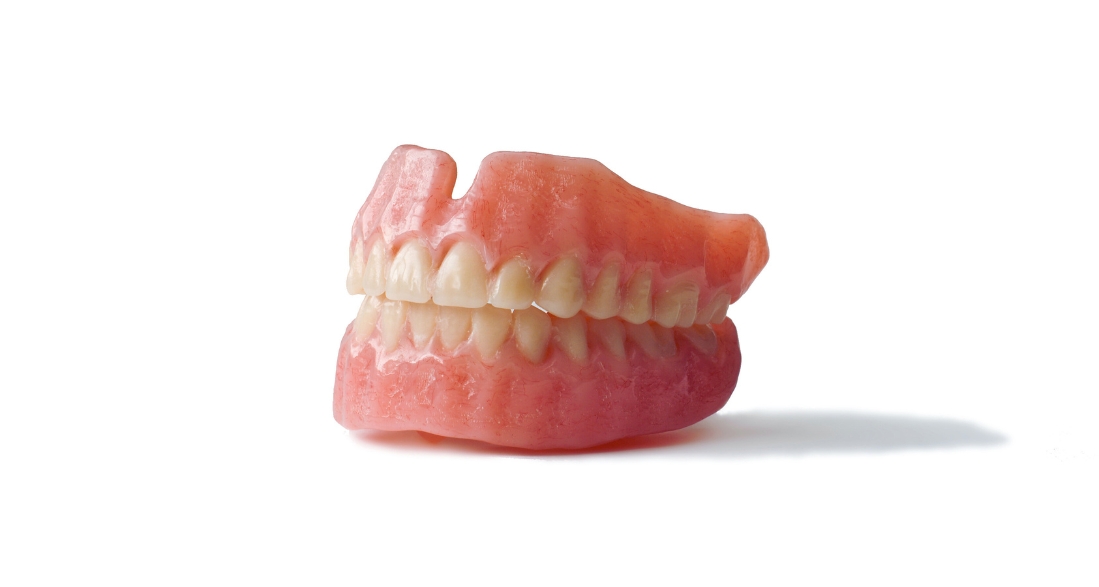Call: 313-295-3300
Your Guide to Choosing the Perfect Dentures: Types, Tips and More!


By Telegraph Family Dentistry of Taylor
Dentures have revolutionized dental care by offering a practical solution for missing teeth. Whether it’s due to aging, injury, or dental disease, they can restore your smile and functionality. With various options available, choosing the right one is essential. This guide will help you navigate the different types, materials, and maintenance tips to find your ideal denture.
Types of Dentures
Choosing the right denture starts with understanding the available types. Each type serves a specific need and offers unique benefits.
Complete Dentures
Complete dentures are designed for those who have lost all their teeth in either the upper or lower jaw. They rest directly on the gums and can be taken out easily. Typically, they are made after the gums have healed post-extraction, ensuring a better fit.
Partial Dentures
For those missing only a few teeth, this type is an excellent option. These consist of replacement teeth fixed to a gum-colored base linked by a metal framework. They help in maintaining the position of remaining teeth and prevent shifting.
Immediate Dentures
These are placed right after tooth extraction. They serve as a temporary solution while the gums heal and the permanent ones are being made. Although convenient, they may require adjustments as the mouth heals.
Implant-Supported Dentures
Implant-supported dentures offer enhanced stability. They are anchored by dental implants, which are titanium posts surgically placed into the jawbone. This type provides a more secure fit and helps in preserving jawbone health.
Materials Used in Dentures
The materials used in dentures significantly impact their appearance, durability, and comfort.
Acrylic Resin
Acrylic resin is commonly used for denture bases due to its natural appearance and lightweight properties. It’s also cost-effective and easy to adjust, making it a popular choice.
Porcelain
Porcelain is often used for the teeth in them because of its strength and resemblance to natural teeth. It is more durable and resistant to wear, although it can be more expensive and heavier than other materials.
Flexible Denture Materials
Flexible materials like nylon are used for partial dentures. These materials are lightweight, comfortable, and offer a more natural look. They adapt to the shape of your gums, providing a snug fit.
Customizing Your Denture Fit
A properly fitted denture is crucial for comfort and functionality. Here’s what you need to consider:
Dental Impressions
Your dentist will take detailed impressions of your mouth to ensure a precise fit. These impressions are crucial for creating a denture that matches the contours of your gums and jaw.
Bite Registration
Accurate bite registration helps in aligning your denture properly. This process involves taking measurements of how your upper and lower jaws fit together.
Try-In Stage
Before the final dentures are made, you’ll have a try-in stage. This involves fitting a wax model of the denture to check for comfort, appearance, and functionality. Adjustments are made based on your feedback.
Maintaining Your Dentures
Proper care not only prolongs their lifespan but also ensures they maintain their optimal appearance.
Cleaning Routine
Clean your denture daily with a soft-bristled brush and denture cleaner. Avoid using regular toothpaste because it may be too abrasive. Rinse them thoroughly after eating to remove food particles.
Soaking Overnight
Soak your denture in a denture-cleaning solution overnight. This helps to remove stains and keeps them moist, preventing them from drying out and losing their shape.
Regular Dental Visits
Regular check-ups with your dentist ensure your dentures remain in good condition. Your dentist can check for any signs of wear, damage, or changes in fit, making necessary adjustments.
Addressing Common Issues
Even with proper care, you might encounter some issues with your denture. Here’s how to address them:
Sore Spots
If you experience sore spots, visit your dentist for an adjustment. Don’t attempt to adjust the denture yourself, as this can cause more harm.
Loose Fit
Over time, your gums and bone structure can change, causing your denture to become loose. Relining or rebasing can improve the fit. Regular dental visits can catch these changes early.
Speech Difficulties
Initially, you might have trouble speaking with a new denture. Practice speaking slowly and clearly. Reading aloud can help you adjust faster.
Benefits of Well-Fitted Dentures
Well-fitted dentures offer numerous advantages beyond aesthetics.
Improved Eating
A properly fitted denture enhances your ability to chew and enjoy a variety of foods. This contributes to better nutrition and overall health.
Enhanced Speech
Denture helps improve speech by filling the gaps left by missing teeth, allowing you to pronounce words more clearly.
Boosted Confidence
A complete set of teeth restores your smile, boosting your self-esteem and confidence in social situations.
Choosing the right denture involves understanding your needs, knowing the types available, ensuring a good fit, and maintaining them properly. For personalized advice and professional care, consulting with a Taylor dentist can make the process smoother and more effective. Your journey to a perfect smile begins with the right information and expert guidance.
Related Articles



